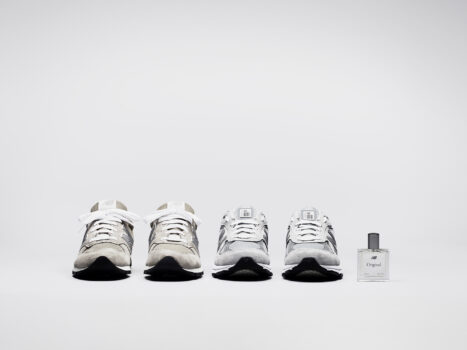 As the co-founder of one of Australia’s leading online wine retailers, it is somewhat unusual that Nitesh Bhatia didn’t really like the stuff until somewhat recently.
As the co-founder of one of Australia’s leading online wine retailers, it is somewhat unusual that Nitesh Bhatia didn’t really like the stuff until somewhat recently.
“I had tried wine, but I wasn’t really a big fan at the time. I was more into beer,” Bhatia tells IRW.
“But then I started hearing stories about how it’s made, and how each and every wine is different – it’s not like beer or vodka, where you can get a similar taste again and again – and I was really intrigued,” he says.
Bhatia was also inspired by the idea of giving small Australian and New Zealand wineries, that weren’t available in bottle shops or anywhere else online, a platform to reach more customers.
He started Just Wines with his brother in 2012. The two had been schooled in their family’s wholesale furniture business, Vivin Imports, which supplies most major furniture retailers in Australia, and Bhatia brought learnings from his time selling excess cushion covers on Ebay, a crash course in e-commerce.
Today, the platform features one of the largest ranges of Australian and New Zealand wines in the country, and Bhatia has high ambitions to become one of Australia’s biggest websites.
Inside Retail Weekly: It’s been about a year-and-a-half since Just Wines raised $6 million to fund website improvements and roll out a new marketing strategy. What have the past 18 months been like?
Nitesh Bhatia: The last 18 months have been quite a fun journey for us. We’ve now got over 6500 products on the website, which makes us the second biggest online retailer in the country. Only Dan Murphy’s is bigger than us, and they have about 8000 products. We’re working with over 1500 wineries at this stage – a year ago it was about 1000 – and all of them are Australian and New Zealand wineries. That’s always been the focus for us. We don’t sell French or Italian or Spanish wine; it’s always been what’s here in the country.
But we’ve still got more than three years left in our five-year plan, and we want to get to over 10,000 products on our website. It was quite easy to get to 6500, but I think it’s going to be challenging to get to over 10,000 because there are a lot of small and boutique wineries that we need to get on board. We’re signing up new wineries every day and bringing new products to our website that aren’t available online anywhere else. We have over 3000 Australian and New Zealand wines that are only available on Just Wines.
They’re from small wineries that may not have a website, it might just be a husband-and-wife team, but they’re unique wines you can’t find anywhere else online in the country. It’s really exciting for us to help make it happen for all these wineries out there.
IRW: What are some of the other key goals in your five-year plan?
NB: One of the things we’re working towards is getting more customers. We still only have about 80,000 customers, and given the number of people who drink wine in the country, we think we should be 20-30 times that number. We’re still small in that area.
IRW: It seems that you have some corporate clients. Do you see B2B as a path to growth?
NB: We’re not a wholesale company, and that’s never been our focus. We do have a couple dozen restaurants and small hotels who buy from us, but we’re not trying to target corporate customers. We’re trying to convert those individuals who buy one or two bottles
a week from their local bottle shop where the variety – in our opinion – is very limited, to buying a box of wine from us every now and
then. If you go to the bottle shop, the majority of brands are their own brands, so you’re not buying wine from wineries with a passion
behind the product. It’s not something unique in our opinion.
IRW: It seems like wine is extremely well suited to an online only business model, since – unlike clothing – people don’t tend to be used to trying a bottle of wine in a bricks-and-mortar store before purchasing, and they don’t tend to return it if they don’t end up liking it. Is that right, or am I missing some aspects that are actually quite difficult about selling wine online?
NB: I think every industry has their own advantages and disadvantages. You definitely highlighted one of them, which is that
people are not returning wines if they’re not to their preference. But we actually encourage our customers to return their wine if they
don’t like it. We have a money-back guarantee up to six months, so if you open a bottle of wine out of the 12 that you would have bought and you don’t like it, we pay for the return shipping and refund the money.
I think this policy really helps people to feel confident about purchasing online, and we only have about 150 people returning
wine out of the tens of thousands of orders we ship.
One of the other disadvantages is that wine, like other alcohol products, is very low margin compared to clothing, and
unlike clothing, it gets damaged quite often. We automatically replace a shipment if it gets lost or damaged, which you may be
surprised to learn happens quite a lot. When I was selling cushion covers on Ebay, we never had a parcel go missing, whereas with
wine, about 100 orders get lost or damaged every month, probably because someone really likes their wine and just doesn’t deliver it, or because they’re really heavy parcels and sometimes they’re dropped.
If that happens, it’s easier for us to just send another box to the customer, rather than make them go through this whole process of
locating the box with the courier company, or waiting for a damaged box to be returned to us.
IRW: Over the last few years, major Australian liquor retailers have improved their e-commerce sites and delivery offerings. Has this impacted your business?
NB: If I say there had not been any impact, I’d be lying. But I think competition is always good for the industry. It forces you to innovate and forces you to think of other ways to grow the business. I think it’s great that [the bottle shops] are finally doing this, even if it’s only because of people like us that they have to think of e-commerce and their online offering. But in the medium to long-term, I think it’s actually going to help the overall industry. Right now, only around 6-7 per cent of alcohol consumers buy wine online, so there are still millions of people who go to the bottle shop to purchase. And if those guys are able to turn customers online, then I think long-term, consumers will realise the benefit of trying other online retailers.
IRW: Are you doing anything to grow that number of people who buy wine online, or is it a waiting game?
NB: We partner with a lot of other marketplaces to introduce ourselves to their
customers. For instance, we’ve been working with Groupon for the last three-plus years,
and we started selling on other deal sites as well, like Scoopon. We recently started
working with Kogan in the last three months, and in the last seven to eight months, we
started working with Ebay. We look at them as alternate channels to grow the business and
introduce ourselves to millions of people who transact on those websites.
IRW: I didn’t realise you were selling through so many marketplaces. That’s really interesting.
NB: It is. We’re one of the only [wine] retailers in the country that does that. I think we’re
Groupon’s biggest wine supplier; the same with Scoopon. We’re not there yet with Kogan, but I can project that
in the last three months, we’ve become their second or third biggest wine retailer. We’re the third biggest on Ebay. Amazon doesn’t sell
wine just yet. Because of the complexity of the logistics, I don’t think that’s a product that they’re interested in, but if they ever decide to sell wine, we’ll definitely sell wine on Amazon as well. We look at it as an overall online industry, and if the consumer wants to buy us somewhere, we should be there.
IRW: Recent research from Australia Post showed that marketplaces are a huge driver of e-commerce growth. They’re a big opportunity.
NB: We’re a marketplace ourselves, if you think about it. We get thousands of orders for products that the wineries actually ship out.
IRW: Are the wineries also shipping orders made on Kogan and Ebay, or are you doing so?
NB: At this stage, we haven’t really explored that area. Almost all those products go out from our warehouse, so we make sure we
have the volume available. Because things can be up and down, and it’s easier for us to handle the volume than ask the wineries to do it.
IRW: Looking forward, what are some of your key growth drivers?
NB: Along with what I was saying about getting new customers, it’s also important for us to take care of
existing customers. Had it not been for the repeat customers, Just Wines wouldn’t have been around for this
long. We take a great deal of pride in working out ways to retain customers, not just adding new customers to the
bucket. Almost 60 per cent of orders come from repeat customers.
A few months back, we actually introduced a VIP membership that’s similar to Amazon Prime. One of our
team members suggested it after hearing customers talk about [Prime] again and again. Free shipping is a
really big driver of customer retention.
We can’t make it happen across the database, but we offer free shipping on every order to our VIP members. It costs
$69 a year, and members also get a free bottle of wine with every order.
Over 2000 people have already joined the program since it started 90 days ago. And we’ve got a really good thing happening with
these customers, where they’re already purchasing a second, third or fourth time in the last 90 days. I think the free shipping and free
bottle of wine are big incentives.
IRW: Another online wine retailer, Naked Wines, just announced it’s pulling out of the NT, due to the new minimum pricing laws
there. Are you still selling in the NT?
NB: We’re happy to take part in the government change, but like Naked Wines, we have the problem where we can’t have two
different pricing structures on our website. It wasn’t practical or a good shopping experience for customers, so unfortunately from
October 1, we had to stop selling to the NT as well.
We had over 400 customers who were affected. It’s not a big number compared to the rest of the states, but we are looking for
ways to make it happen for them in future.
IRW: Are there any other challenges you’re facing right now, either specific to your business, or the broader industry?
NB: One of the major challenges we have in our industry is logistics and making
same-day delivery available to customers. The logistics [for wine] just isn’t there
in Australia compared to the rest of the world, where there are massive logistics
companies making it happen. There are a couple companies that offer it for a couple
dozen products, they’re able to control the shipping experience, but it just doesn’t
exist for businesses like ours with over 6500 products.
IRW: What’s next for Just Wines? Any plans to raise more capital?
NB: We’re not looking to raise capital at this stage, but in the next three years, we’ll
definitely be in the market. We’re always looking for like-minded people who support our goals to make Just
Wines one of the biggest websites in the country.
We still haven’t pushed a lot on the app side of things at this stage, it wasn’t a short term goal for us to work towards, but there
is one other key thing we’re working towards and it will be getting a craft beer website up and running before the end of this year. We
see similar challenges on the craft beer side of things, where there are hundreds of breweries that aren’t reaching the online market.
The early feedback from our wine customers who are into craft beer is really positive.





